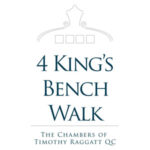Wills & Trusts Law Reports | Winter 2021 #185The claimant brought a claim to propound an alleged lost will of her late father (the 2017 will) against her sister (the first defendant) and her elder brother (the second defendant). The defendants alleged that the 2017 will, which was propounded on the basis of what was claimed to be a photocopy of it, was a forgery and that consequently the deceased died intestate. Expert evidence as to the genuineness of the alleged signature of the deceased to the 2017 will was inconclusive. The alleged witnesses to the 2017 will gave evidence.
The second defendant counterclaimed for a declar...
Helen Pearce and Sam Cave-Browne-Cave provide clarification on liquidated damages and the scope of final accounts ‘The judge stated that the contract “could not be clearer” in allowing Aker to dispute any payment made under it and that the memorandum of understanding had not altered its meaning.’ The Technology and Construction Court has concluded that …
Continue reading "Damages: We are (nearly) sailing"
This post is only available to members.
Anna Macey evaluates the balance between patient confidentiality and the prevention of harm ‘The mother’s claim was that her father’s medical practitioners had a duty of care to her, and her child, and ought to have informed her at any earlier opportunity of the likelihood of her father’s diagnosis.’ In the sad case of ABC …
Continue reading "Damages: Duty of care"
This post is only available to members.
Jeremy Farr and Shawn Kirby discuss the interpretation of a consequential loss clause ‘The correct starting point of interpretation of the clause was with the natural and ordinary meaning of the language chosen by the parties to give effect to their intent.’ In a decision with potentially far-reaching implications for commercial parties generally and the …
Continue reading "Damages: Of little consequence"
This post is only available to members.
Noel McMichael and Clare Arthurs analyse the impact of Makdessi ‘The Supreme Court looked at two main questions: when is the penalty rule engaged, and what makes a contractual provision penal?’ The Supreme Court has re-examined the rule against penalties in contracts. Its judgment in the joined cases of Cavendish Square Holding BV v El …
Continue reading "Damages: Avoiding a penalty"
This post is only available to members.
Paul Joukador and Nathan Searle report on a landmark Supreme Court judgment ‘Provided that the relevant contractual provision: (i) serves a legitimate business interest(s); and (ii) is not extravagant, exorbitant or unconscionable, it will not be a penalty and therefore will be enforceable.’ It is common practice to include a clause in a contract which …
Continue reading "Damages: Offside – a new test for penalty clauses"
This post is only available to members.
Wills & Trusts Law Reports | October 2014 #143Mr John Bayley settled property on trust on 17 November 1983. He died in 1987. The trust was established with the assistance of the settlor’s longstanding business associate and friend, Mr Derek Gray, who provided various services to the trust through the first defendant, SG Associates (SGA), a company of which he was a director. From 1998, Mr Gray was also director of a US company known as Clean Diesel Technologies (CDT), which developed, designed, marketed and licensed technologies and solutions for the reduction of emissions from combustion engines. He was also a director of SGA...
Satinder Hunjan discusses what new technology and recent legal changes mean for claims ‘The fundamental point is that of the patient’s own choice with their own advice from their treating clinician. It is not a matter for any medico-legal expert directly.’In recent times, there has been a sea change in the approach to the quantification …
Continue reading "Damages: Quantum in amputation cases"
This post is only available to members.
David Sawtell looks at the calculation of Wrotham Park damages It is reasonable for the court to look at the eventual outcome and to consider whether or not that is a useful guide to what the parties would have thought at the time of their hypothetical bargain where there has been nothing like an actual …
Continue reading "Damages: Park life"
This post is only available to members.
Nick Rowles-Davies assesses the impact of the draft Damages-Based Agreement Regulations There is some force in the argument that acting under a DBA pushes the solicitors closer to being a funder and ‘the real party’ to the proceedings. The Civil Justice Council’s (CJC) working party on damages-based agreements (DBAs) has prompted some debate in the …
Continue reading "Damages: A slice of the cake"
This post is only available to members.








